- Wall Street (1987)
- Schindler's List (1993)
- The Godfather Trilogy (1972)
- Citizen Kane (1941)
- The Garment Jungle (1957)
- Executive Suite (1954)
- Glengarry Glen Ross (1992)
- Network (1976)
- Mandingo (1975)
- Burn! (1969)
- Roots (1977)
- Leap of Faith (1992)
- This Is Spinal Tap (1984)
- White Mile (1994)
- Chinatown (1974)
- Rob Roy (1995)
- The Betsy (1978)
- New Jack City (1991)
- Tucker: The Man and His Dream (1988)
- Boiler Room (2000)
- The Idolmaker (1980)
- The Big Knife (1955)
- The Untouchables (1987)
- Imitation of Life (1934)
- American Gigolo (1980)
- Goodfellas (1990)
- Boomerang (1992)
- Airport (1970)
- Disclosure (1994)
- Gung Ho (1986)
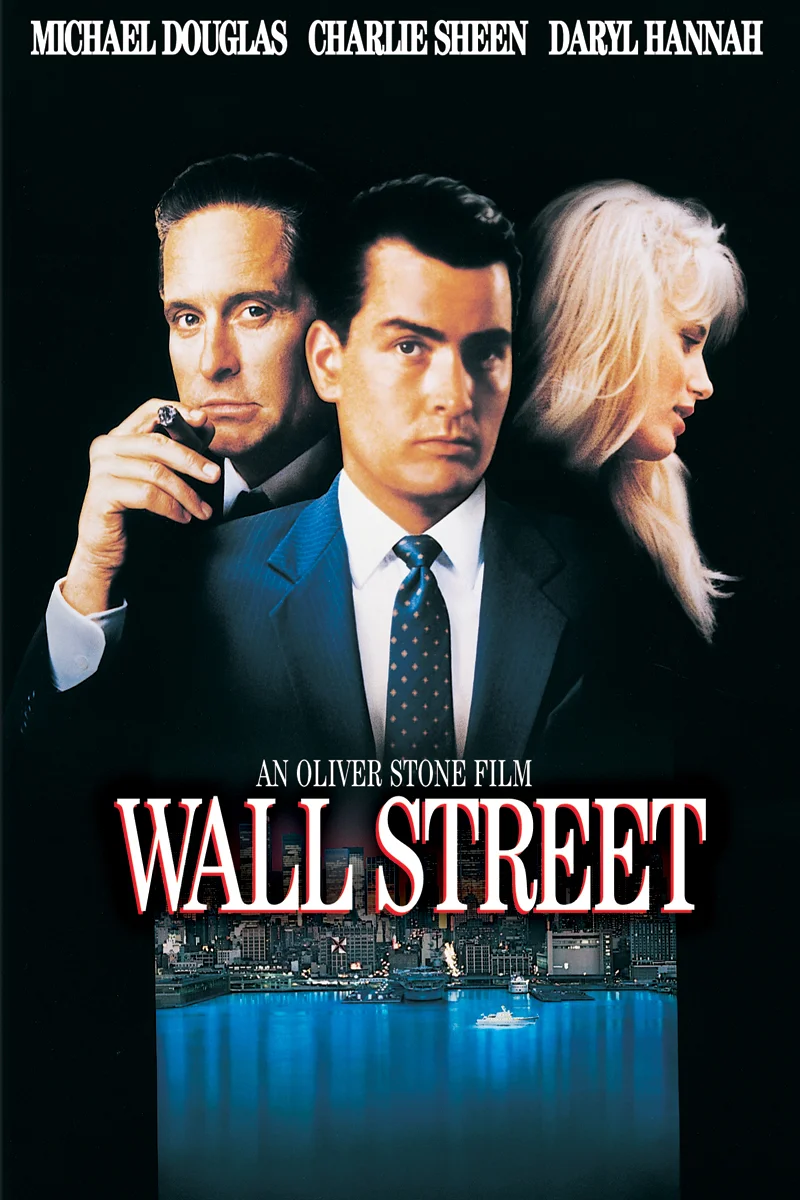 Michael Douglas is chilling as Gordon Gekko and steals every scene. The most famous line of Wall Street is:
"Greed, for lack of a better word, is good." It's also full of Gekkoisms such as "The most valuable commodity I
know of is information," "Ever wonder why fund managers can't beat the S&P 500? 'Cause they're sheep, and sheep
get slaughtered," and "I don't throw darts at a board. I bet on sure things. Read Sun-tzu, The Art of War.
Every battle is won before it's ever fought."
Michael Douglas is chilling as Gordon Gekko and steals every scene. The most famous line of Wall Street is:
"Greed, for lack of a better word, is good." It's also full of Gekkoisms such as "The most valuable commodity I
know of is information," "Ever wonder why fund managers can't beat the S&P 500? 'Cause they're sheep, and sheep
get slaughtered," and "I don't throw darts at a board. I bet on sure things. Read Sun-tzu, The Art of War.
Every battle is won before it's ever fought."
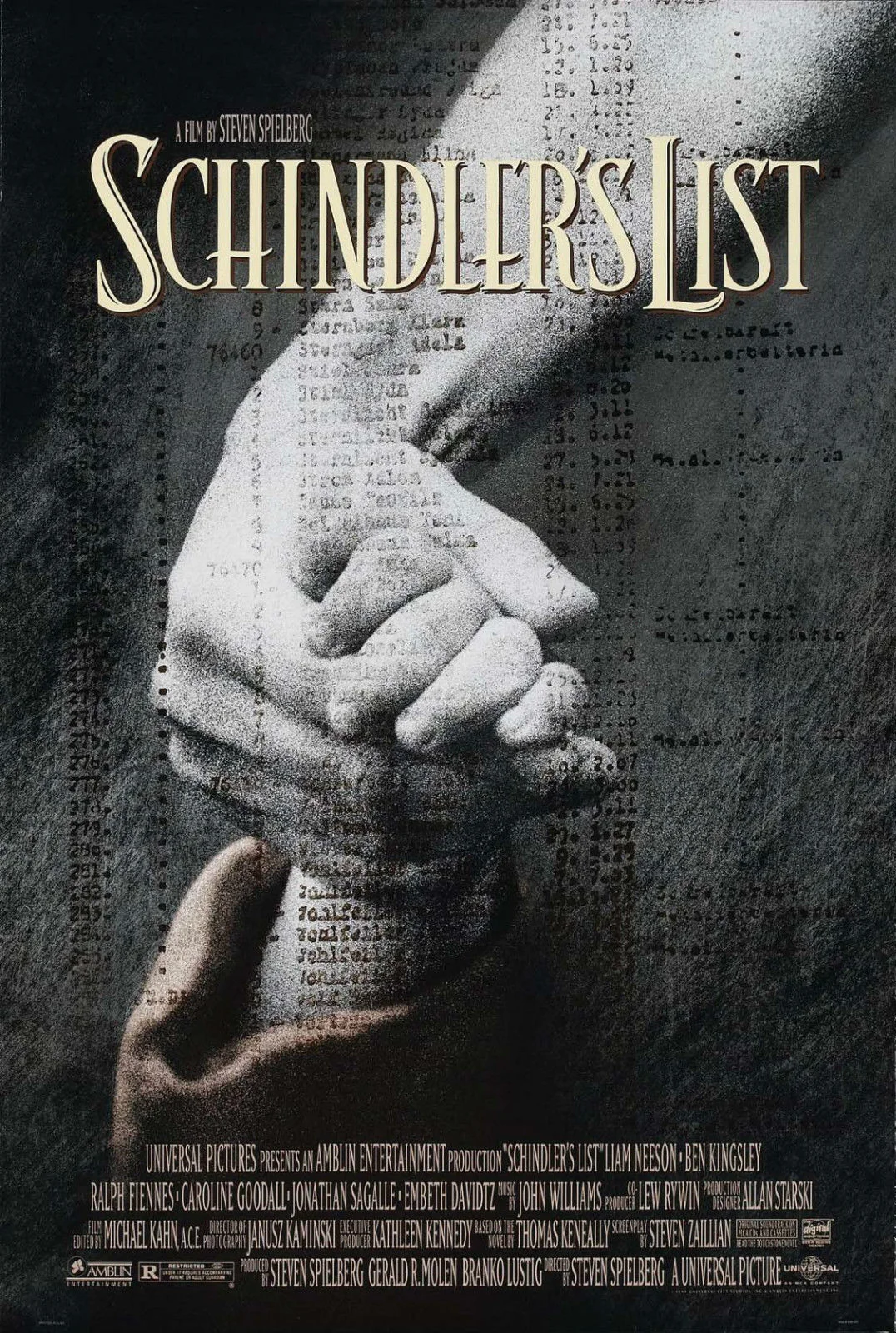 This is the best picture of the decade. It's what I see in books about the Holocaust: Nazi brutality in black
and white. Schindler's List is the stark truth of what happened in German-occupied Europe from 1933 to
1945. There are many powerful scenes that are beyond belief. Steven Spielberg should be praised for the singular
cinematic achievement.
This is the best picture of the decade. It's what I see in books about the Holocaust: Nazi brutality in black
and white. Schindler's List is the stark truth of what happened in German-occupied Europe from 1933 to
1945. There are many powerful scenes that are beyond belief. Steven Spielberg should be praised for the singular
cinematic achievement.
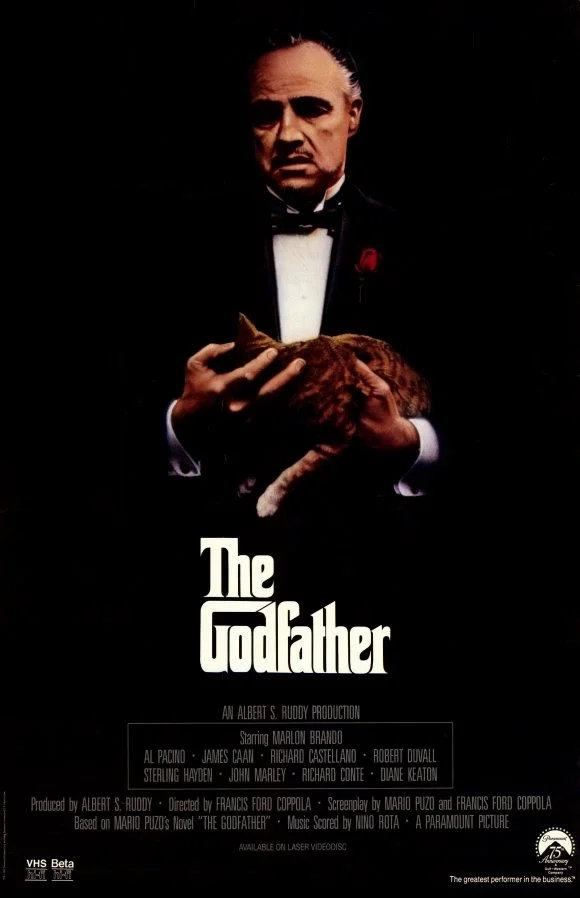 The Godfather trilogy is a masterpiece with many big-time actors, spanning at least five generations of
Corleone's family in the mafia. There are numerous classic scenes, lines, and movie moments that make the saga
unforgettable. Gordon Willis' cinematography is fantastic throughout, and that's why he has the moniker: Prince
of Darkness.
The Godfather trilogy is a masterpiece with many big-time actors, spanning at least five generations of
Corleone's family in the mafia. There are numerous classic scenes, lines, and movie moments that make the saga
unforgettable. Gordon Willis' cinematography is fantastic throughout, and that's why he has the moniker: Prince
of Darkness.
 When Citizen Kane was released, Orson Welles reached the top of the mountain and became an immortal god
of cinema. Afterwards, he had nowhere to go but down...down he went hard. It puts everything about cinema into
perspective. An important film for numerous reasons, it's one of the best-shot works of art in terms of
storytelling through the power of cinematography. The controversy behind the scenes is the reason for its
mammoth reputation which makes the whole thing fascinating.
When Citizen Kane was released, Orson Welles reached the top of the mountain and became an immortal god
of cinema. Afterwards, he had nowhere to go but down...down he went hard. It puts everything about cinema into
perspective. An important film for numerous reasons, it's one of the best-shot works of art in terms of
storytelling through the power of cinematography. The controversy behind the scenes is the reason for its
mammoth reputation which makes the whole thing fascinating.
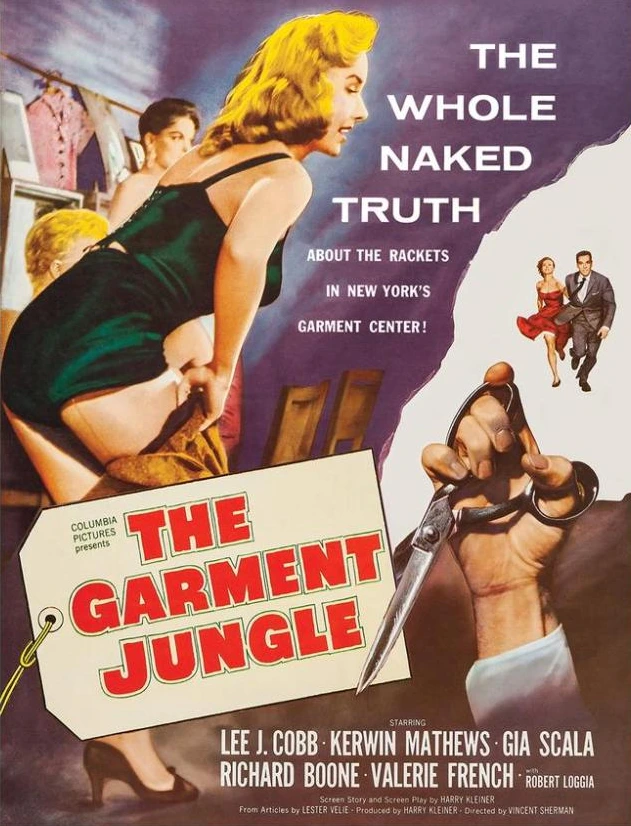 Lee J. Cobb may have played the same role once too many times, but he was perfectly cast as Walter Mitchell in
The Garment Jungle. It's a true film noir picture with tons of corruption in the background. Alan
Mitchell, an idealist, is shocked to find out about it and begins to realize his father may not be a principled
guy after all. Then again, he didn't want his son involved in the first place because he knew it's just tough,
uncompromising occupation with high level of stress. Armed with a strong script, the acting is terrific all
the way through with a bunch of unsavory characters.
Lee J. Cobb may have played the same role once too many times, but he was perfectly cast as Walter Mitchell in
The Garment Jungle. It's a true film noir picture with tons of corruption in the background. Alan
Mitchell, an idealist, is shocked to find out about it and begins to realize his father may not be a principled
guy after all. Then again, he didn't want his son involved in the first place because he knew it's just tough,
uncompromising occupation with high level of stress. Armed with a strong script, the acting is terrific all
the way through with a bunch of unsavory characters.
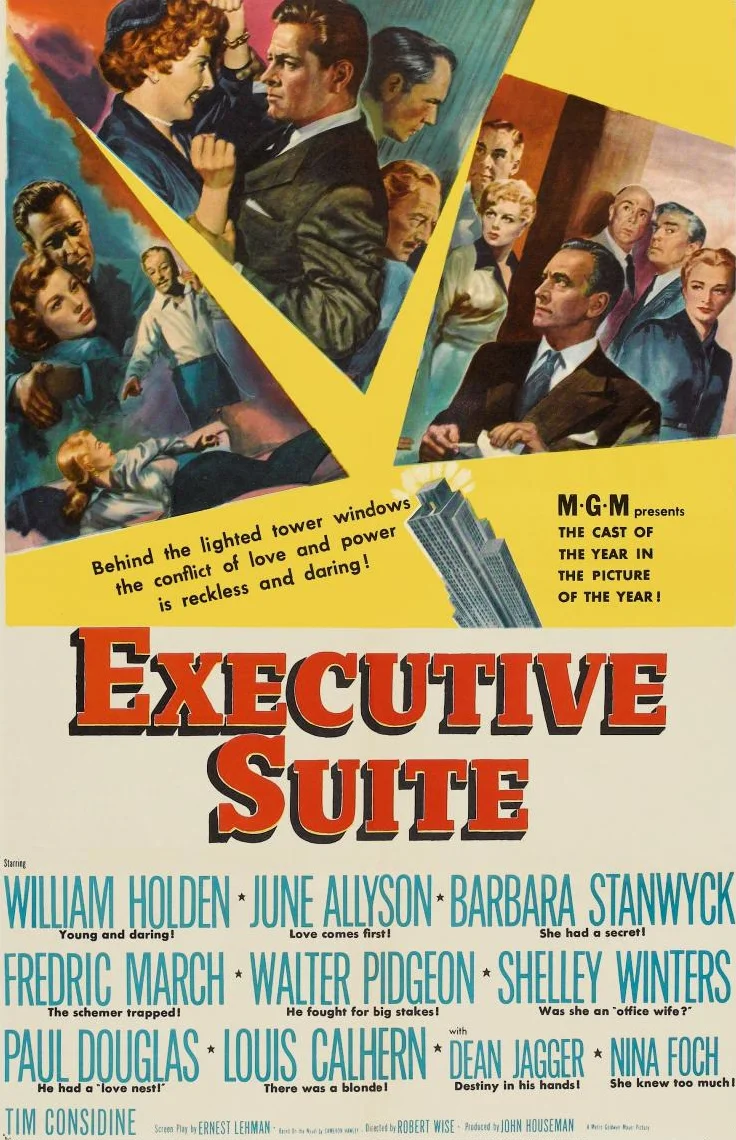 Executive Suite is a rare film that gives a glimpse of business ethics and how a corporation is run. It's
simple story of a power struggle among execs to be next in the line for the CEO position of a furniture
manufacturing company. The performances of the all-star cast are outstanding, and they're fun to watch.
Executive Suite is a rare film that gives a glimpse of business ethics and how a corporation is run. It's
simple story of a power struggle among execs to be next in the line for the CEO position of a furniture
manufacturing company. The performances of the all-star cast are outstanding, and they're fun to watch.
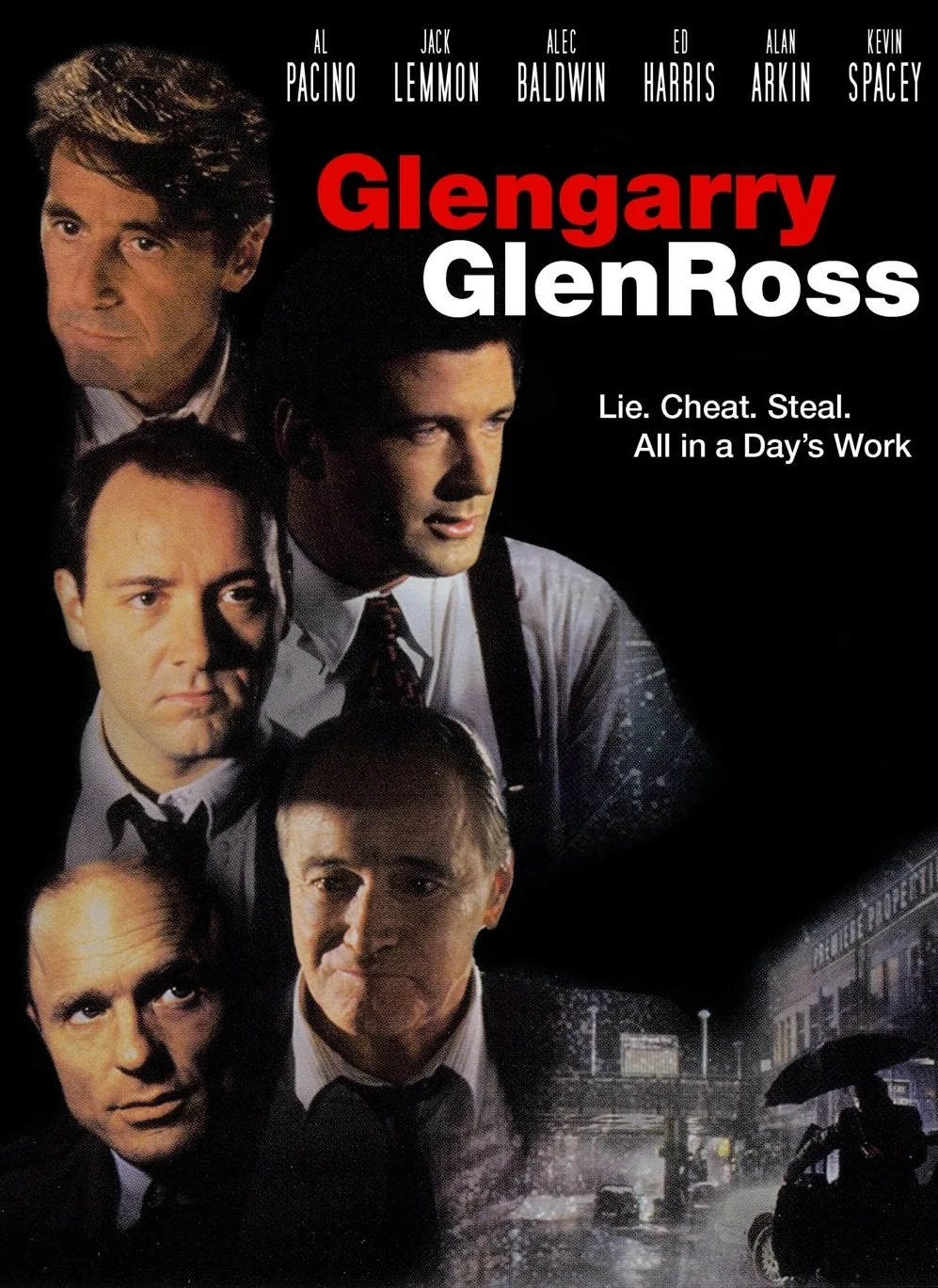 Death of a Fuckin' Salesman is how the all-star cast described Glengarry Glen Ross which started
out as a play that won David Mamet the Pulitzer Prize in 1984. Alan Arkin called the acting job a "murder"
because of Mamet's insistence on everybody to perform exactly how the parts were scripted, right down to their
facial emotions with no leeway.
Death of a Fuckin' Salesman is how the all-star cast described Glengarry Glen Ross which started
out as a play that won David Mamet the Pulitzer Prize in 1984. Alan Arkin called the acting job a "murder"
because of Mamet's insistence on everybody to perform exactly how the parts were scripted, right down to their
facial emotions with no leeway.
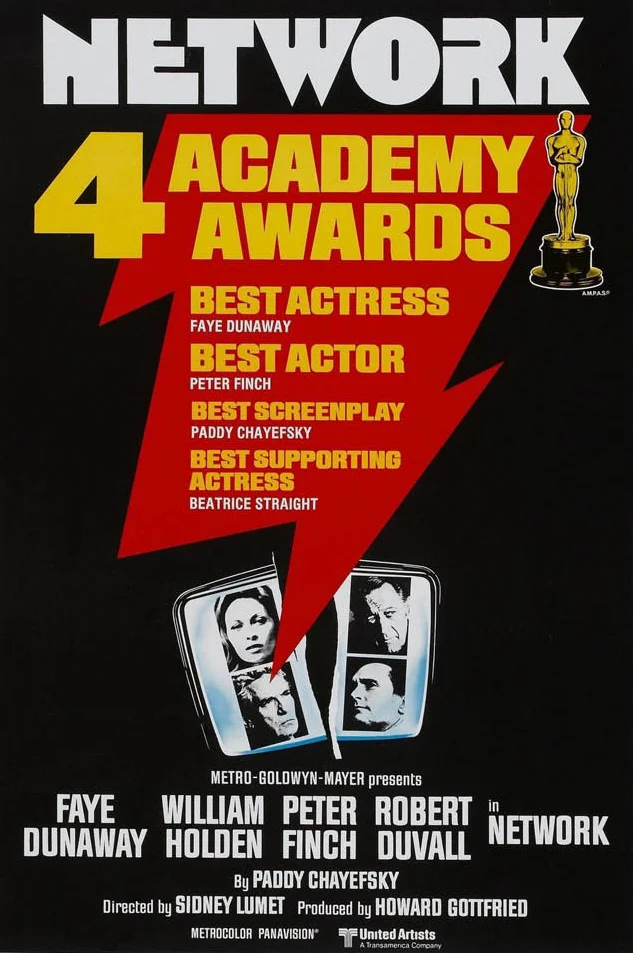 A brilliant satire about the world of television that's penned by the great Paddy Chayefsky, Network is
the one that Howard Beale famously yells: "I am as mad as hell, and I am not going to take this anymore!" The
quality of the acting is at its zenith with William Holden, Faye Dunaway, Peter Finch, Robert Duvall, and Ned
Beatty giving powerful performances.
A brilliant satire about the world of television that's penned by the great Paddy Chayefsky, Network is
the one that Howard Beale famously yells: "I am as mad as hell, and I am not going to take this anymore!" The
quality of the acting is at its zenith with William Holden, Faye Dunaway, Peter Finch, Robert Duvall, and Ned
Beatty giving powerful performances.
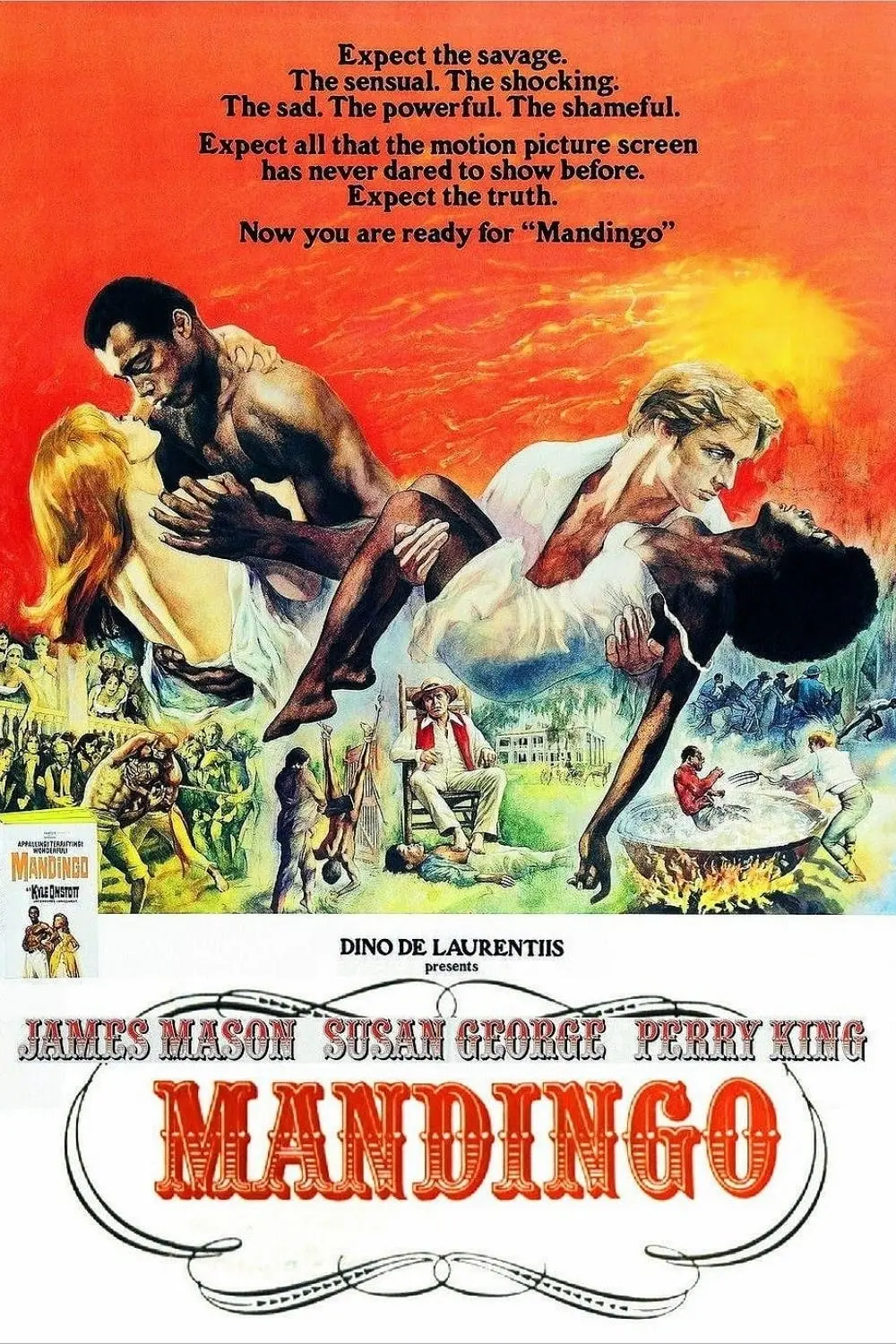 Mandingo is extremely raw and honest when it comes to slavery in the United States during the 19th century,
making Roots look like a puppy. On why he took on the project, director Richard Fleischer said, "The
whole slavery story has been lied about, covered up, and romanticized so much I thought it really had to
stop...the only way to stop was to be brutal as I could possibly be."
Mandingo is extremely raw and honest when it comes to slavery in the United States during the 19th century,
making Roots look like a puppy. On why he took on the project, director Richard Fleischer said, "The
whole slavery story has been lied about, covered up, and romanticized so much I thought it really had to
stop...the only way to stop was to be brutal as I could possibly be."
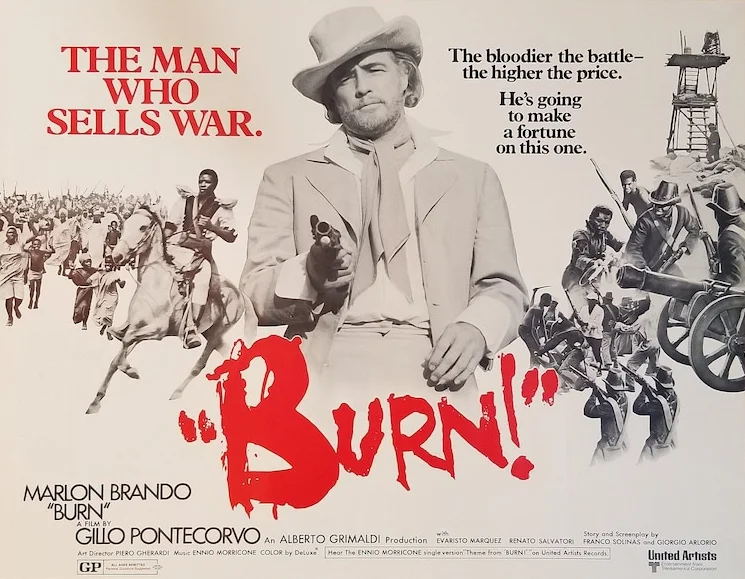 A rare film that showcases Marlon Brando at his absolute best, Burn! provides an excellent insight into
colonialism to form a banana republic out of a Central American country. Confessing that he did his best acting,
Brando plays a villain as in somebody who "sells war."
A rare film that showcases Marlon Brando at his absolute best, Burn! provides an excellent insight into
colonialism to form a banana republic out of a Central American country. Confessing that he did his best acting,
Brando plays a villain as in somebody who "sells war."
 If there's a definitive black American motion picture, it's this one. Starting out as a novel in 1976 by Alex
Haley about nine generations of African descendants, Roots was developed into a TV miniseries one year
later, and just about everybody in the country tuned in, setting viewership records. There's nothing like it.
What's easy to forget is that slaves were treated as properties.
If there's a definitive black American motion picture, it's this one. Starting out as a novel in 1976 by Alex
Haley about nine generations of African descendants, Roots was developed into a TV miniseries one year
later, and just about everybody in the country tuned in, setting viewership records. There's nothing like it.
What's easy to forget is that slaves were treated as properties.
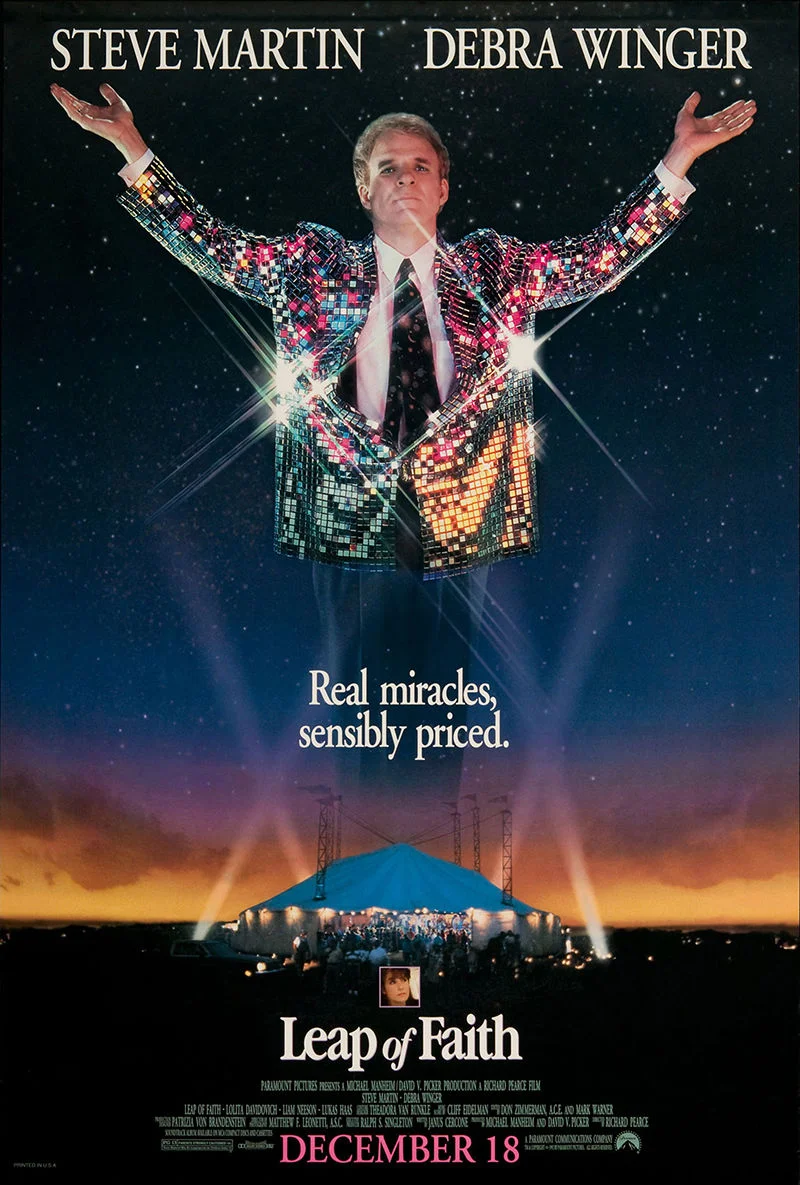 Leap of Faith is an appropriate title for an Elmer Gantry-like film because it's all about placing
all of one's faith on a pile of bullshit, hence its tagline "Real miracles, sensibly priced." Steve Martin's
performance is fantastic. What a convincing con man he plays as Jonas Nightengale.
Leap of Faith is an appropriate title for an Elmer Gantry-like film because it's all about placing
all of one's faith on a pile of bullshit, hence its tagline "Real miracles, sensibly priced." Steve Martin's
performance is fantastic. What a convincing con man he plays as Jonas Nightengale.
 "Ladies and gentlemen, direct from Hell, Spinal Tap!!" Genius is written all over this film, one of the funniest
ever. Christopher Guest, Michael McKean, and Harry Shearer are brilliant. Many viewers thought the English
band was real, and they got fooled big time. That's how convincing these actors were. To think of the movie is
to think of the timeless quotes and scenes.
"Ladies and gentlemen, direct from Hell, Spinal Tap!!" Genius is written all over this film, one of the funniest
ever. Christopher Guest, Michael McKean, and Harry Shearer are brilliant. Many viewers thought the English
band was real, and they got fooled big time. That's how convincing these actors were. To think of the movie is
to think of the timeless quotes and scenes.
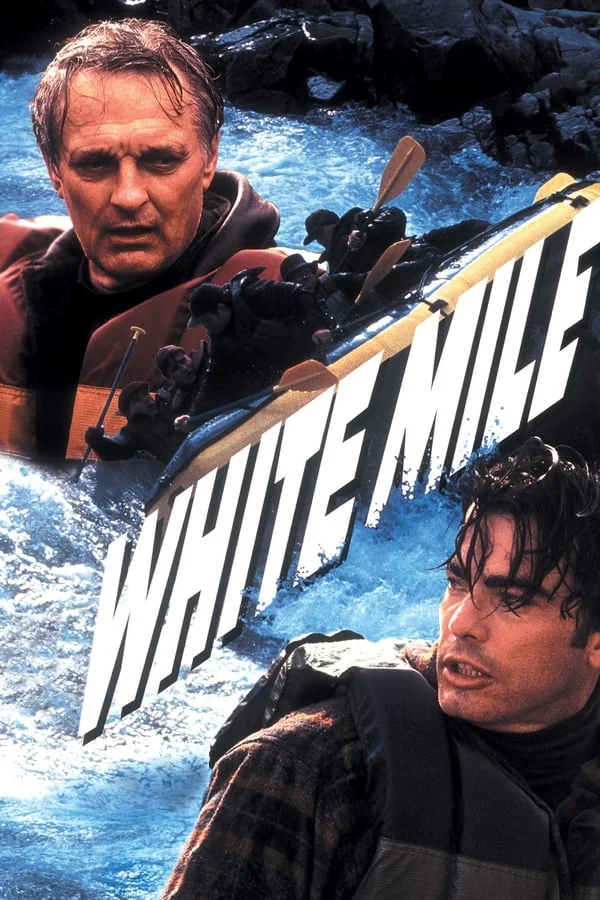 White Mile is full of life lessons, and the most important of all is: "Are you going to be in control or
let yourself be controlled by others?" It's a business trip gone wrong with great whitewater rafting scenes.
Everybody involved gets top marks for making them appear realistic. The cast is full of familiar faces, and Alan
Alda plays a villainous character.
White Mile is full of life lessons, and the most important of all is: "Are you going to be in control or
let yourself be controlled by others?" It's a business trip gone wrong with great whitewater rafting scenes.
Everybody involved gets top marks for making them appear realistic. The cast is full of familiar faces, and Alan
Alda plays a villainous character.
 Chinatown is the quintessential neo-noir picture. Everything about the film is meticulously crafted.
It starts with Robert Towne's screenplay which is followed up with the exquisite cinematography and an
unparalleled cast of Jack Nicholson, Faye Dunaway, and John Huston. The final line "Forget it, Jake. It's
Chinatown" is unforgettable.
Chinatown is the quintessential neo-noir picture. Everything about the film is meticulously crafted.
It starts with Robert Towne's screenplay which is followed up with the exquisite cinematography and an
unparalleled cast of Jack Nicholson, Faye Dunaway, and John Huston. The final line "Forget it, Jake. It's
Chinatown" is unforgettable.
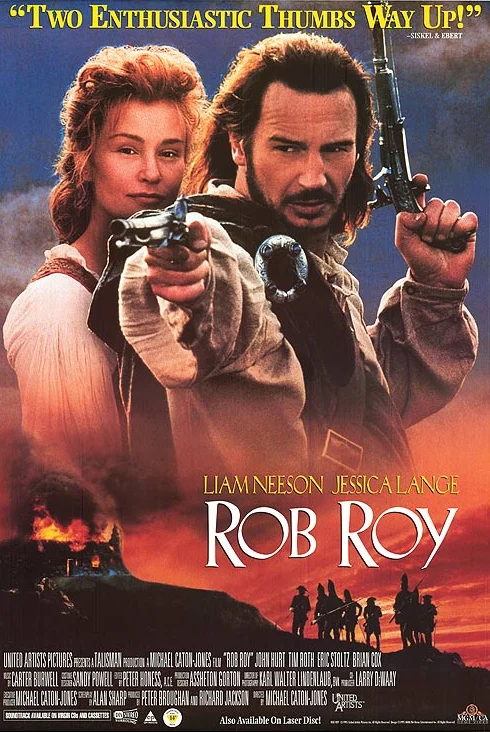 Rob Roy is one of the best swashbuckling films made. The writing, the acting, and the stabs at
primitiveness are uniformly excellent. Then, there's the larger-than-life Rob Roy against the backdrop of the
Scottish Highlands. The sword battle at the end is perfectly choreographed and is thus the best ever. Tim Roth
is unbelievable, garnering an Oscar nomination.
Rob Roy is one of the best swashbuckling films made. The writing, the acting, and the stabs at
primitiveness are uniformly excellent. Then, there's the larger-than-life Rob Roy against the backdrop of the
Scottish Highlands. The sword battle at the end is perfectly choreographed and is thus the best ever. Tim Roth
is unbelievable, garnering an Oscar nomination.
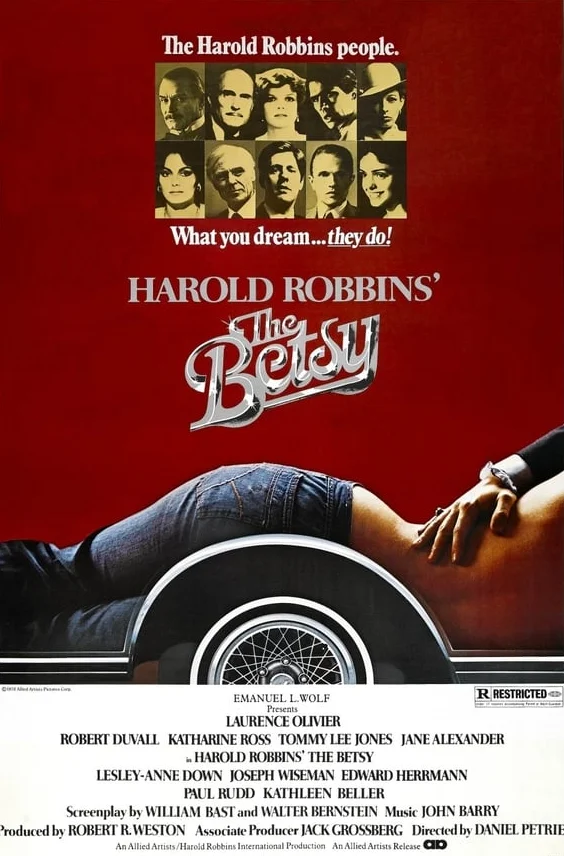 The Betsy touches a lot of topics: incest, greed, adultery, two-faced characters, homosexuality, murder,
and selfish motives. Reminding me of The Godfather Part III, the intricate dealings of an automotive empire
are deep. How keen is the fact that Daniel Petrie put all the information together smoothly to tell a complicated
story. Additional pluses are The Great Gatsby-like garb, the rich in/exterior sets, and the opulence.
The Betsy touches a lot of topics: incest, greed, adultery, two-faced characters, homosexuality, murder,
and selfish motives. Reminding me of The Godfather Part III, the intricate dealings of an automotive empire
are deep. How keen is the fact that Daniel Petrie put all the information together smoothly to tell a complicated
story. Additional pluses are The Great Gatsby-like garb, the rich in/exterior sets, and the opulence.
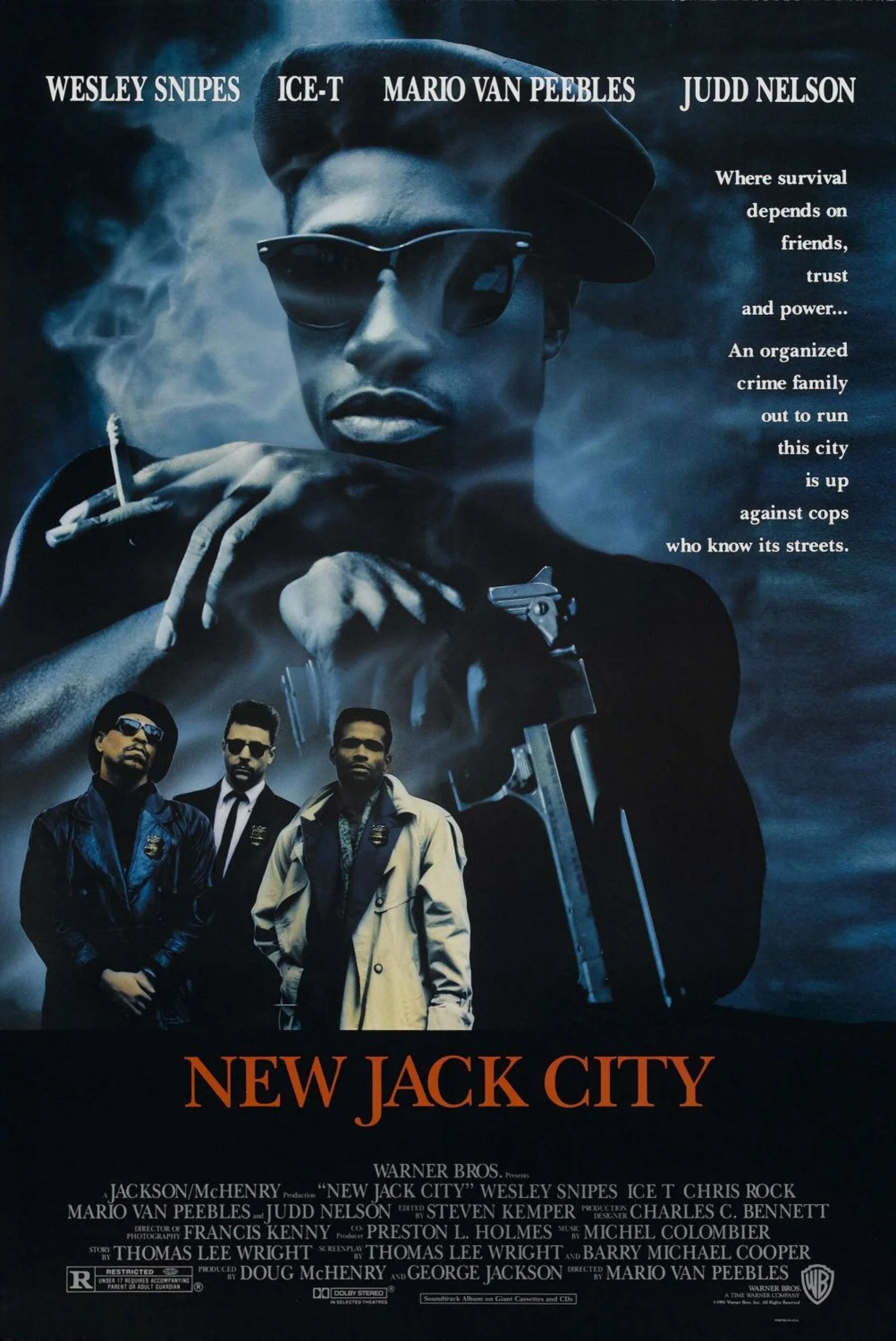 New Jack City is The Godfather of black cinema and continues to be an underrated hip-hop gangster
picture. There's an edge to it that exudes style through captivating storytelling and hard-to-beat editing. Wesley
Snipes and Ice-T are unforgettable. Using the crack epidemic that ravaged New York City during the late 80's and
early 90's, it's a perfect backdrop for a black drug lord like Nino Brown to make his presence known.
New Jack City is The Godfather of black cinema and continues to be an underrated hip-hop gangster
picture. There's an edge to it that exudes style through captivating storytelling and hard-to-beat editing. Wesley
Snipes and Ice-T are unforgettable. Using the crack epidemic that ravaged New York City during the late 80's and
early 90's, it's a perfect backdrop for a black drug lord like Nino Brown to make his presence known.
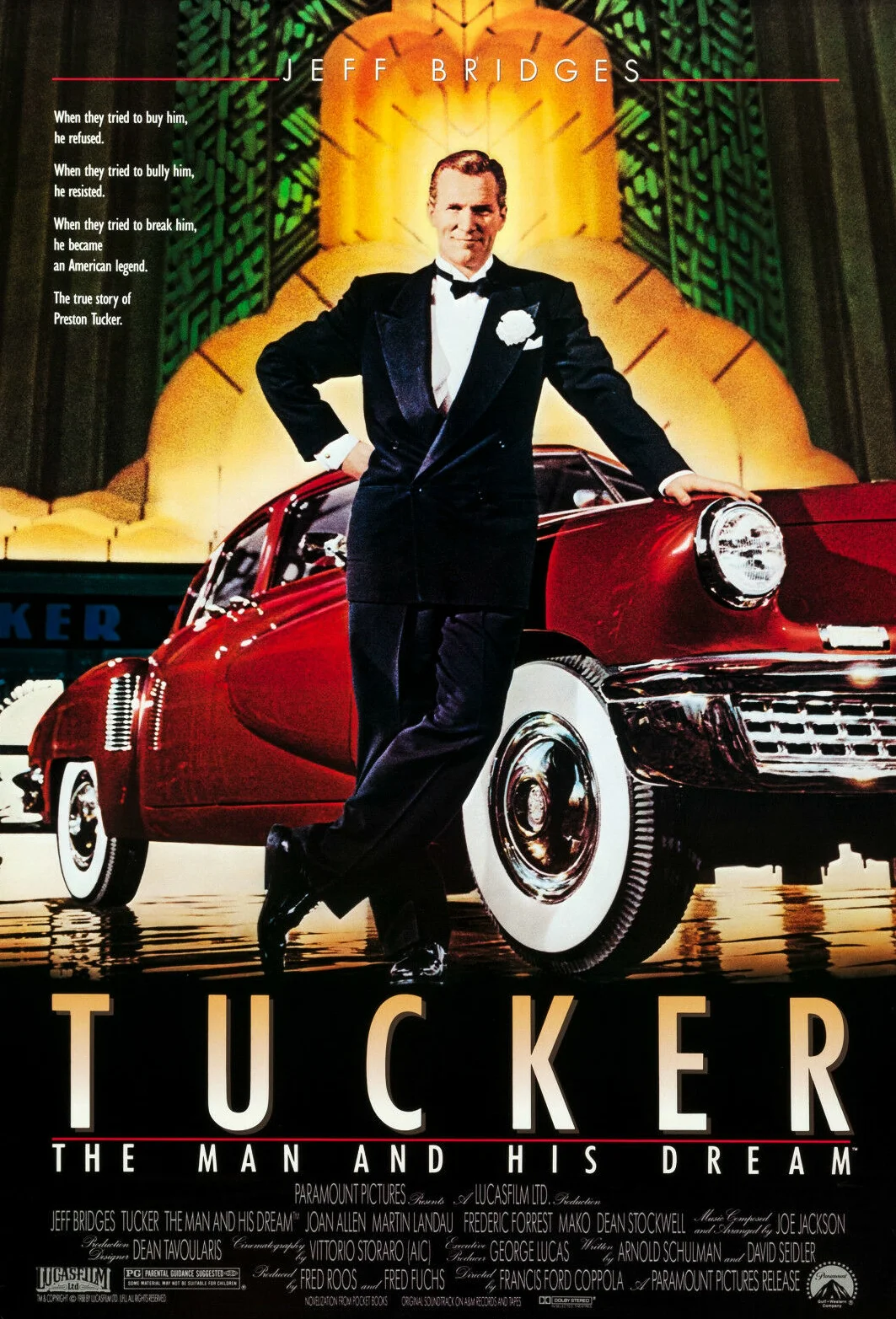 Tucker: The Man and His Dream is a magical film that speaks well to the American spirit. It's the
wonderful cinematography that makes the look and feel of the 40's come alive. Jeff Bridges is outstanding as
Preston Tucker, an idealist can-do. Tucker's struggles with the higher-ups to see his dreams through while having
a smile on his face. It can be depressing to watch, but there are plenty of lessons to be taken from his resolve.
Tucker: The Man and His Dream is a magical film that speaks well to the American spirit. It's the
wonderful cinematography that makes the look and feel of the 40's come alive. Jeff Bridges is outstanding as
Preston Tucker, an idealist can-do. Tucker's struggles with the higher-ups to see his dreams through while having
a smile on his face. It can be depressing to watch, but there are plenty of lessons to be taken from his resolve.
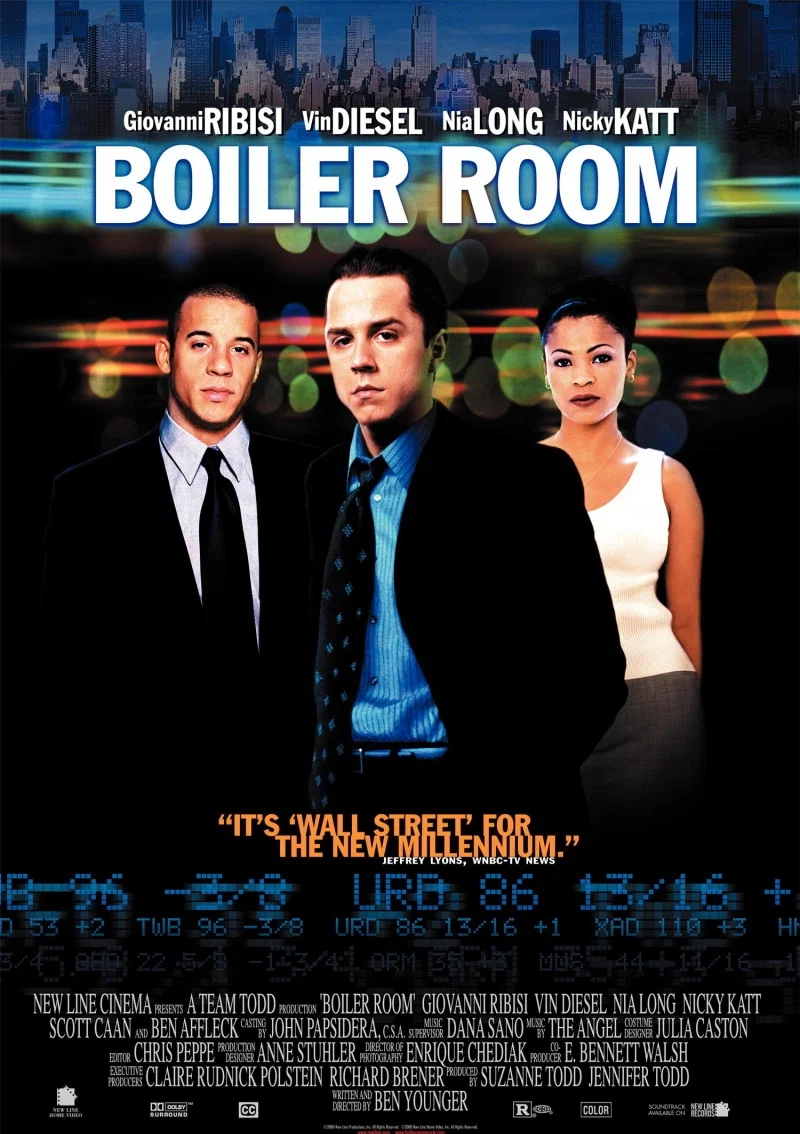 Featuring gangsters in business suits, Boiler Room is accurate. That's why there was a strong disclaimer
put out in front before the movie began to roll. Back then, people didn't trade online; they had stockbrokers
making trades for them over the phone. It cost them a huge deal of money to do so. Those who were inside and/or
had a seat had the most knowledge and access to information.
Featuring gangsters in business suits, Boiler Room is accurate. That's why there was a strong disclaimer
put out in front before the movie began to roll. Back then, people didn't trade online; they had stockbrokers
making trades for them over the phone. It cost them a huge deal of money to do so. Those who were inside and/or
had a seat had the most knowledge and access to information.
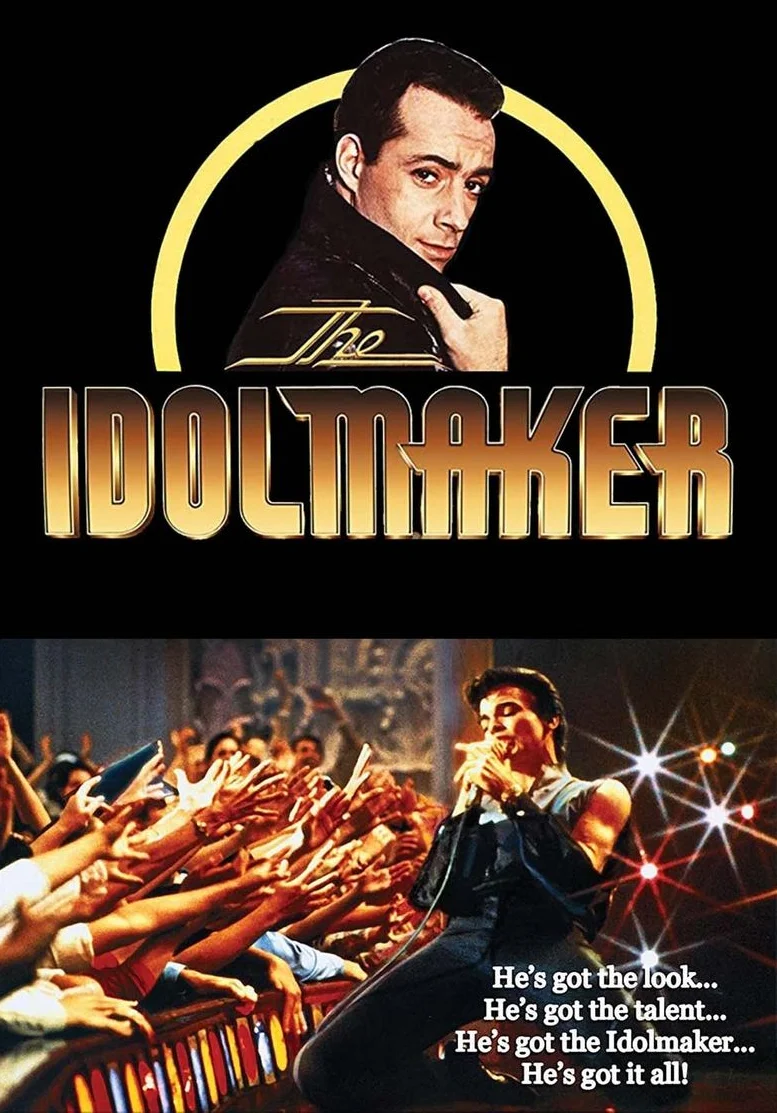 Before the invention of Auto-Tune, there was The Idolmaker. One needed the look and stage presence, and
the rest of everything else didn't matter. Well, that's not totally true; it would be a good idea not to have
the baggage that came with Jerry Lee Lewis which killed his career during the 50's. Pulling the strings is a
promoter named Vinnie Vacarri (Bob Marcucci in real life) who acts more of a slick salesman.
Before the invention of Auto-Tune, there was The Idolmaker. One needed the look and stage presence, and
the rest of everything else didn't matter. Well, that's not totally true; it would be a good idea not to have
the baggage that came with Jerry Lee Lewis which killed his career during the 50's. Pulling the strings is a
promoter named Vinnie Vacarri (Bob Marcucci in real life) who acts more of a slick salesman.
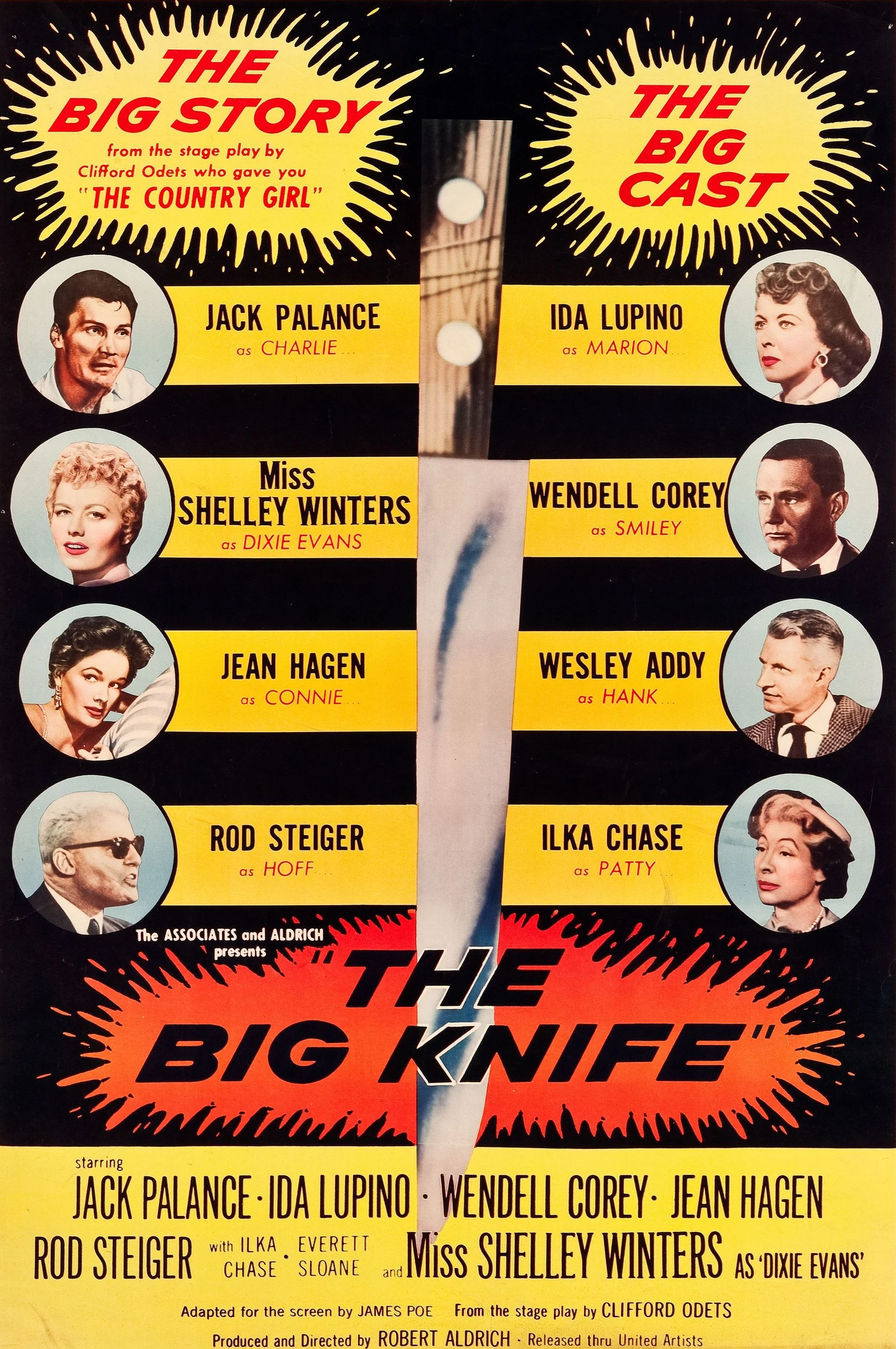 Since the release of Sunset Boulevard in 1950, Hollywood hadn't been dark again until The Big Knife
five years later. As strong as the cast is which includes three future Oscar winners, it's Jack Palance who gives
the most powerful performance which leads to the shocking ending.
Since the release of Sunset Boulevard in 1950, Hollywood hadn't been dark again until The Big Knife
five years later. As strong as the cast is which includes three future Oscar winners, it's Jack Palance who gives
the most powerful performance which leads to the shocking ending.
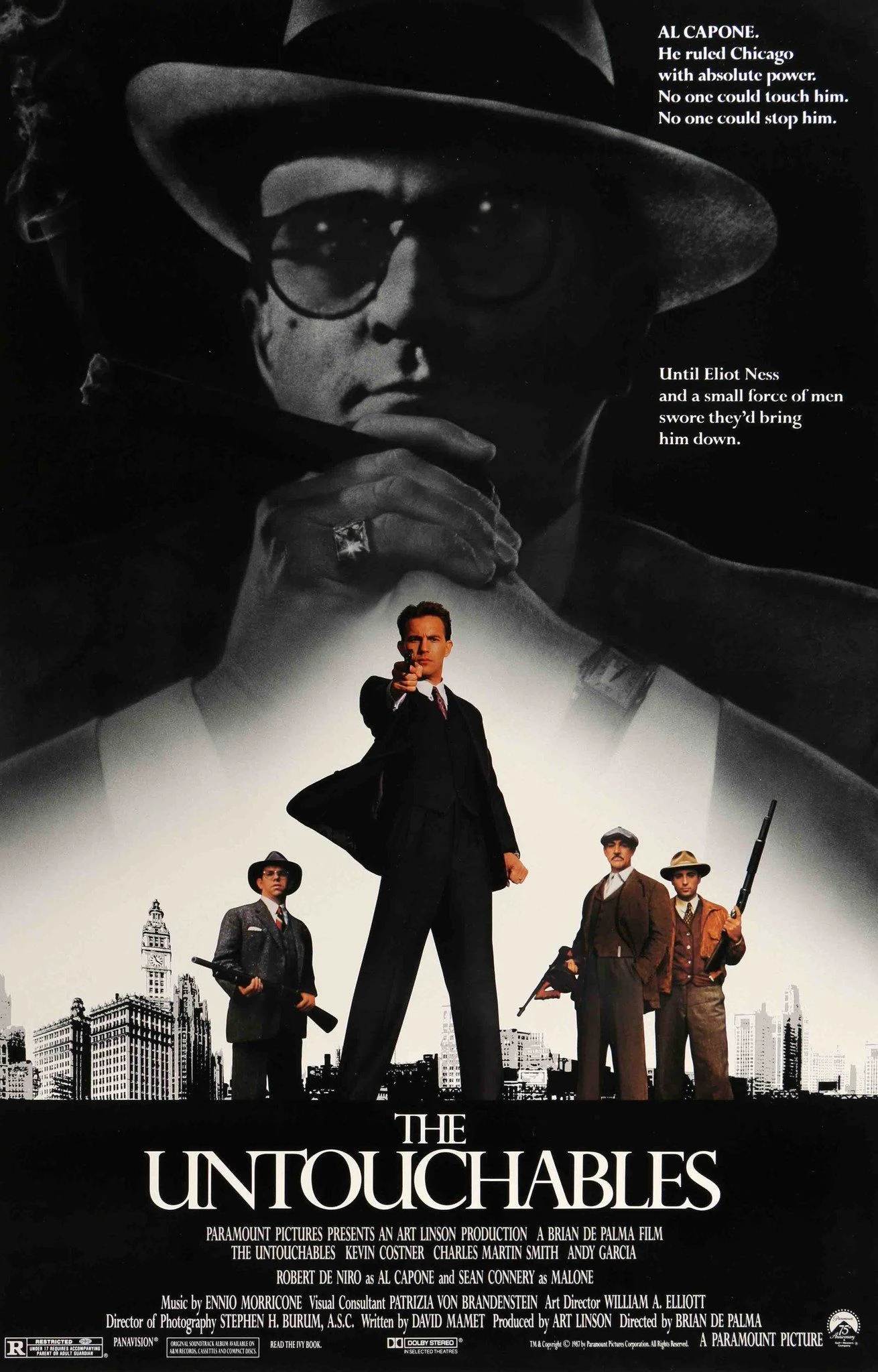 The Untouchables is an exquisitely shot picture. Two key scenes are the main reasons for its high
replayability value. Also, a lot of it has to do with Kevin Costner, Billy Drago, and Robert De Niro for giving
excellent performances. A much-deserved Oscar nomination went to the Costume Design team that's led by Marilyn
Vance.
The Untouchables is an exquisitely shot picture. Two key scenes are the main reasons for its high
replayability value. Also, a lot of it has to do with Kevin Costner, Billy Drago, and Robert De Niro for giving
excellent performances. A much-deserved Oscar nomination went to the Costume Design team that's led by Marilyn
Vance.
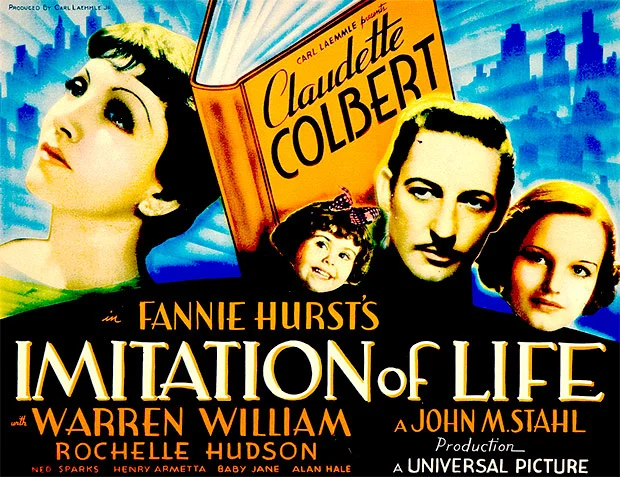 Far ahead of its time in many ways, Imitation of Life is a classy picture with great performances by Claudine
Colbert, Louise Beavers, and Warren William. Among the reasons why is the idea of a successful female entrepreneur.
There's a partnership between a white woman and a black woman, an unthinkable concept in 1934.
Far ahead of its time in many ways, Imitation of Life is a classy picture with great performances by Claudine
Colbert, Louise Beavers, and Warren William. Among the reasons why is the idea of a successful female entrepreneur.
There's a partnership between a white woman and a black woman, an unthinkable concept in 1934.
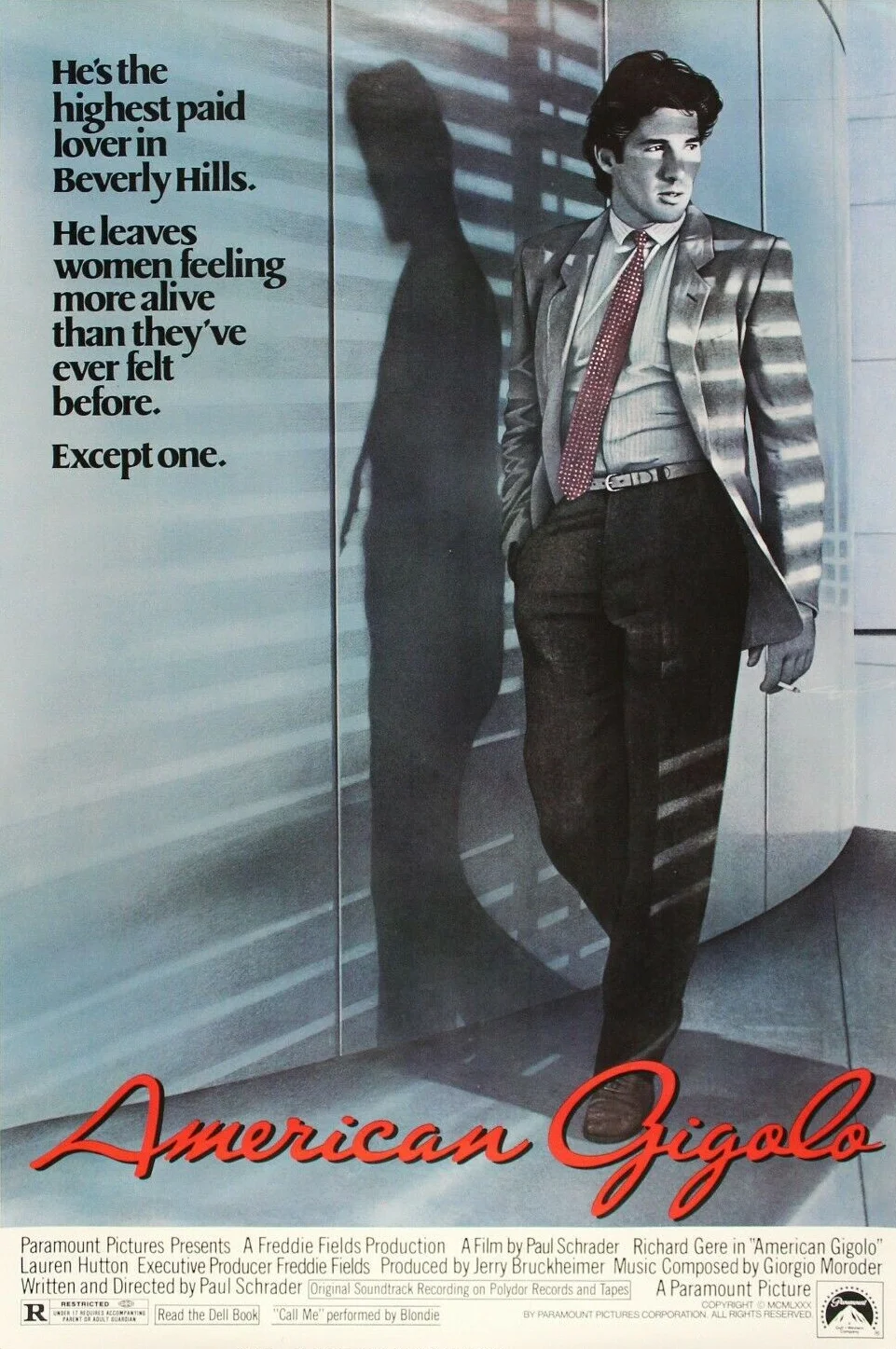 Move over, Julia Roberts...Richard Gere shows what a high-priced escort is and, more importantly, how to do it well
with class. American Gigolo is a fantastic neo-noir with lots of style. The Armani clothes that Gere
wears, he introduces the brand in a big way. Lauren Hutton does an admirable job of keeping up with Richard Gere
who's simply unbeatable.
Move over, Julia Roberts...Richard Gere shows what a high-priced escort is and, more importantly, how to do it well
with class. American Gigolo is a fantastic neo-noir with lots of style. The Armani clothes that Gere
wears, he introduces the brand in a big way. Lauren Hutton does an admirable job of keeping up with Richard Gere
who's simply unbeatable.
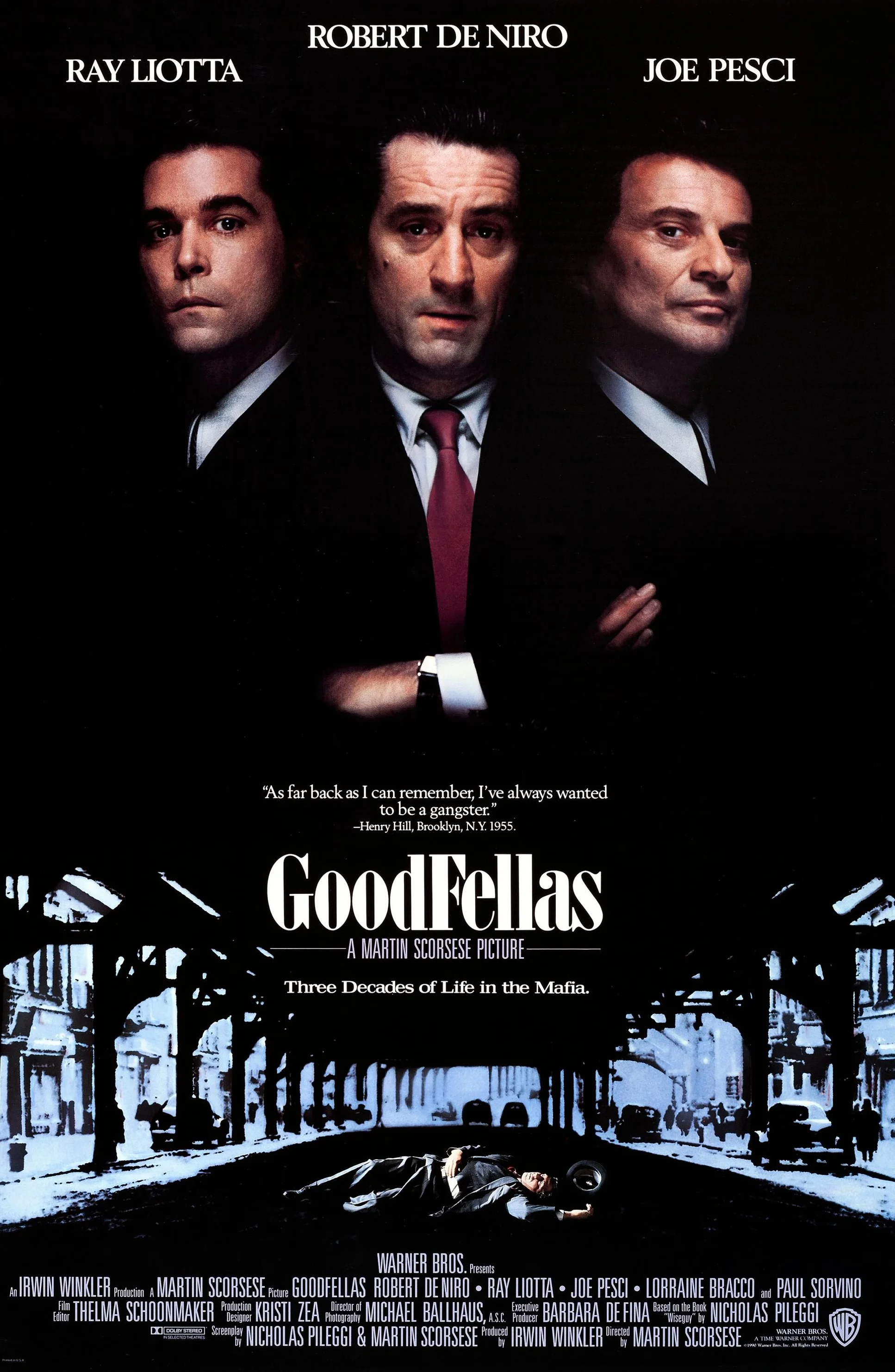 Without doubt, Goodfellas is the hardest-hitting Mafia picture made. There's nothing like it. The first
two minutes, complemented by Saul Bass' titles, is what sets the tone for the rest of the film. In order to
get Goodfellas made, Martin Scorsese called Nicholas Pileggi, the author of Wiseguy, to say,
"I've been waiting for this book my entire life," which was met with "I've been waiting for this phone call
my entire life."
Without doubt, Goodfellas is the hardest-hitting Mafia picture made. There's nothing like it. The first
two minutes, complemented by Saul Bass' titles, is what sets the tone for the rest of the film. In order to
get Goodfellas made, Martin Scorsese called Nicholas Pileggi, the author of Wiseguy, to say,
"I've been waiting for this book my entire life," which was met with "I've been waiting for this phone call
my entire life."
 Although intelligently crafted that's high quality, Boomerang is strictly for adults and walks a fine
line between sexy and crass. The writing, the acting, and the costume design are outstanding. Everybody does
an excellent job of making this kind of picture that has been long missing in black cinema. Given the sexual
content, Boomerang needs to be judged fairly since it's on the same level as Carnal Knowledge
and Alfie.
Although intelligently crafted that's high quality, Boomerang is strictly for adults and walks a fine
line between sexy and crass. The writing, the acting, and the costume design are outstanding. Everybody does
an excellent job of making this kind of picture that has been long missing in black cinema. Given the sexual
content, Boomerang needs to be judged fairly since it's on the same level as Carnal Knowledge
and Alfie.
 The king of disaster pictures, Airport is that good. The suspense is exhilarating and exciting. Until
the moment disaster strikes, the heavy drama is what makes the movie intriguing, gripping, and not all that
different from From Here to Eternity. The performances rendered by the all-star cast are excellent, and
the standouts are Dean Martin and Helen Hayes who won the Oscar for Best Supporting Actress.
The king of disaster pictures, Airport is that good. The suspense is exhilarating and exciting. Until
the moment disaster strikes, the heavy drama is what makes the movie intriguing, gripping, and not all that
different from From Here to Eternity. The performances rendered by the all-star cast are excellent, and
the standouts are Dean Martin and Helen Hayes who won the Oscar for Best Supporting Actress.
 People had incorrectly said that Disclosure was a unique major Hollywood movie for dealing with sexual
harassment by having the male call out a female for it (that would be The Temp which was made a year
earlier). Regardless, Disclosure is a high-quality film with matching performances and a strong script.
Everything looks on the level, business-wise.
People had incorrectly said that Disclosure was a unique major Hollywood movie for dealing with sexual
harassment by having the male call out a female for it (that would be The Temp which was made a year
earlier). Regardless, Disclosure is a high-quality film with matching performances and a strong script.
Everything looks on the level, business-wise.
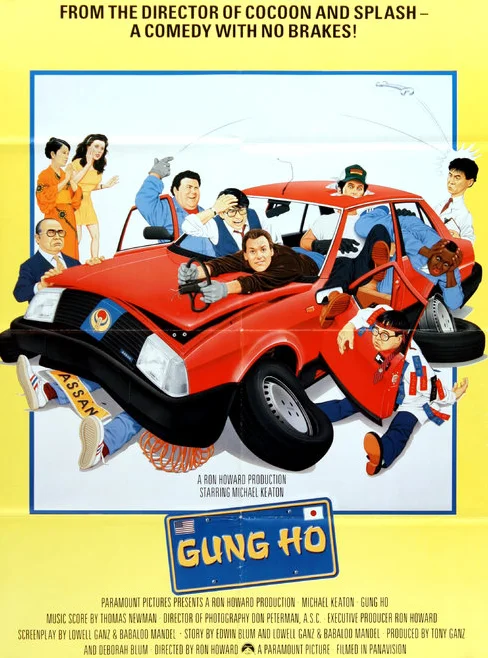 Gung Ho is a funny movie that has a lot to say about value systems. It's interesting to see how the
Americans and Japanese interact with each other because of cultural differences. The former are so abrasive
and chauvinistic that, according to Bloomberg Businessweek, Toyota used the film as an example of how
to not manage them.
Gung Ho is a funny movie that has a lot to say about value systems. It's interesting to see how the
Americans and Japanese interact with each other because of cultural differences. The former are so abrasive
and chauvinistic that, according to Bloomberg Businessweek, Toyota used the film as an example of how
to not manage them.